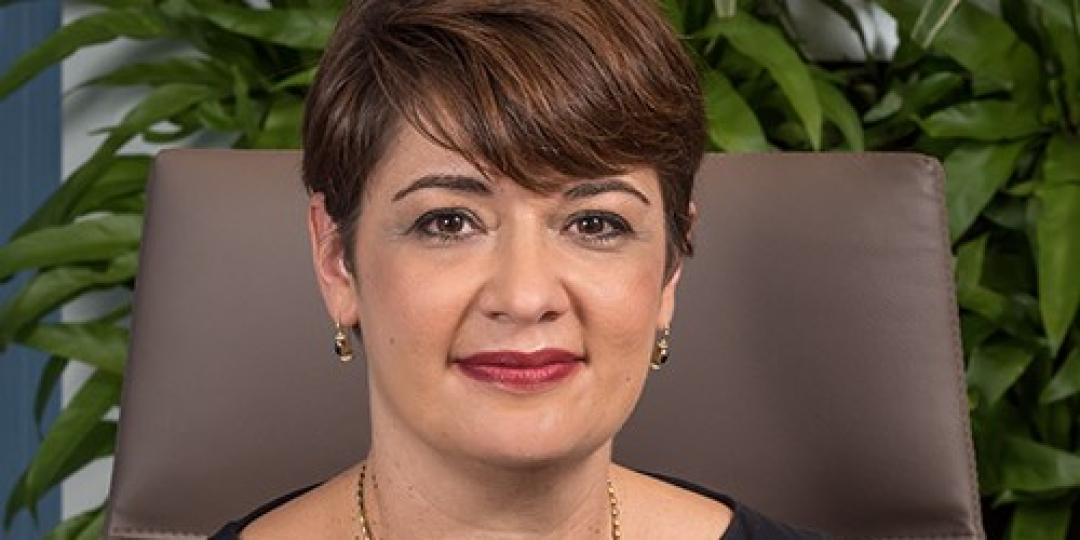Corporate travel volumes are finally recovering but BidTravel CEO, Lidia de Olim Folli, has flagged three possible setbacks – expensive airfares, point-of-sale limitations and a general shortage of airline seats on popular business routes.
On the upside, the airport processes are getting easier. De Olim Folli, who has just returned from one of many business trips, said: “Each international trip has been easier and easier.”
BidTravel has been busy with a major re-staffing and re-training exercise for the past three months.
‘Massive’ and ‘terrible’ were two words she used to describe COVID-19's side effects. “It has been great to re-employ, but we had cut back really hard,” she said. “BidVest was very supportive, but we had to manage costs.”
She said the business had now scaled back to about 65% of its pre-pandemic size.
Currently, according to de Olim Folli, BidTravel’s business is split 50/50 corporate/leisure. “It was probably headed that way before COVID-19,” she said. “Pre-COVID, I had purchased an inbound business (tour operator and ground handler, New Frontiers Tours). We have changed quite a lot over the years.”
Thankfully, brands like Carlson Wagonlit Travel could sustain themselves during hard lockdown by servicing a few essential worker customers still travelling. Overseas government officials also had to move around, she said. “It was quite a big saving grace. Those (government) postings continued throughout COVID, so our corporate business was not at a zero base.”
The biggest challenge during the pandemic and leading into the recovery had been the time and the huge amount of research travel consultants had had to deal with, she said, outlining the stages that COVID took the industry through. There was the conflicting information, the necessity for PCR tests and the uncertainty about rules and safety until the South African government had set up clear COVID rules and structures. “In other countries in Africa, it wasn’t always easy to find out who was doing PCR testing. For travel to the US, we had to deal with a 24-hour PCR test requirement before a 16-hour flight!”
De Olim Folli is now confident corporate travel will continue to rebound but felt that volumes would have shrunk by 10-15%. “I do think there was quite a lot of excess and I am worried that prices are going to push people back into those online meetings,” she said.
She described rising travel costs as “prohibitively expensive” and was concerned about the effect of Comair's demise on domestic ticket prices and its knock-on effect on domestic business travel volumes. “It’s really problematic because we need the capacity, and airfares have increased.”
She warned on ticket prices: “In Europe, we are seeing the same thing. R15 000-R20 000 to fly into Europe in an economy-class seat? That’s crazy! Everyone wants to travel but, when you’ve got four people travelling in economy class and it is going to cost R100 000? I am worried. We welcome the return to travel and we all want to travel, but at what price point does that wear off?”
Nonetheless, at the moment, BidTravel’s corporate brands are seeing a preference among their corporate clients for premium-class travel.
De Olim Folli said agents were having to contend with availability issues on popular business and leisure routes, and sporadic, last-minute flight cancellations. To get around point-of-sale issues, CWT, Travel Connections and Rennies BCD are falling back on their global network to secure inventory.
“I can’t confidently say that it is every flight and every route, but I do see origin and destination revenue management and that there are definitely fewer seats being made available (in the South African market). My gut feel is that the percentage of seats being made available to sell out of South Africa is less than in the past. Having said that, when I speak to Craig Smith, CEO of New Frontiers Tours and our (inbound) agents, they are also battling to find seats coming into South Africa. That speaks to there just not being as many seats.”
De Olim Folli does expect capacity constraints to ease as airlines and the travel industry scale back up. “It takes about four months to bring a single aircraft back. Yes, there may be 500 (Airbus) A380s parked in the desert, but you can’t just go in and turn them on. It is genuine that it takes time to get that capacity back up and running. And I don’t think anyone anticipated this much demand this quickly. Everybody has to scale back up. It takes long, and everybody has lost talent.”
She said she was happy be moving on from Rennies’ long-running tax dispute with SARS. A recent court ruling in Rennies’ favour brought to an end a six-year fight. The fight was on behalf of the travel industry, concerning the application of VAT to upfront and supplementary commission for the arranging of international air travel (see here). Rennies received financial support from Asata in what has been called a landmark case. De Olim Folli said the challenge would have been a costly exercise for any business. And the outcome? “It’s a massive win for the industry,” she said.














